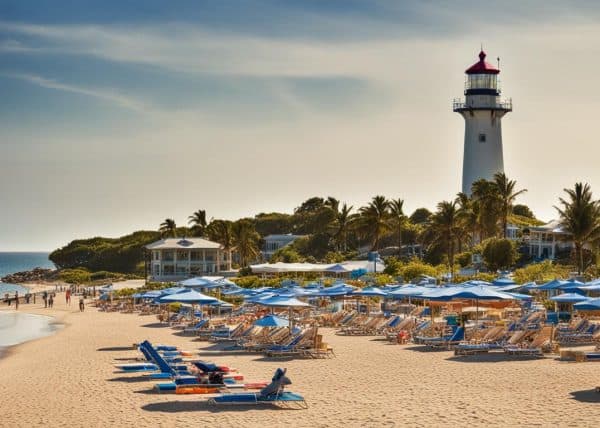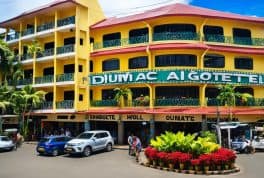Dumaguete City
Dumaguete City, known as the "City of Gentle People," is a picturesque coastal city on Negros Island, Philippines. It's celebrated for its relaxed vibe, friendly locals, and beautiful waterfront. Home to the prestigious Silliman University, Dumaguete has a vibrant academic atmosphere, attracting students globally. The city boasts a rich cultural heritage, with landmarks like the historic Rizal Boulevard and the ancient Bell Tower. It's also a gateway to natural wonders, including diving spots and Apo Island, making it a favorite among adventurers and nature enthusiasts.Top 10 Things to See in Dumaguete
Dumaguete, known as the "City of Gentle People," offers a unique blend of cultural, historical, and natural attractions. Here are the top 10 things to see in Dumaguete:
- Silliman University Campus: As one of the oldest American-founded universities in Asia, Silliman University is not just an educational institution but a landmark. The campus is known for its old acacia trees, sprawling grounds, and historical buildings, including the Silliman University Anthropology Museum.
- Rizal Boulevard: Named after the Philippine national hero, Dr. Jose Rizal, this boulevard is a favorite spot for both locals and tourists. It's perfect for leisurely walks, especially during sunset, and is lined with restaurants and cafes.
- Dumaguete Belfry Tower: Located near the city’s central market and the St. Catherine of Alexandria Cathedral, the Dumaguete Belfry Tower is a historic landmark. It was originally built as a watchtower against marauders and now stands as a symbol of the city.
- Apo Island: A short boat ride from Dumaguete, Apo Island is a must-visit for snorkeling and diving enthusiasts. The island is known for its vibrant coral reefs and is a model for community-managed marine sanctuaries.
- Twin Lakes of Balinsasayao & Danao: These two crater lakes surrounded by lush forests are ideal for nature lovers. Activities include kayaking, bird watching, and enjoying the serene, natural landscape.
- The Boulevard's Food Scene: Rizal Boulevard is not just a scenic spot but also a culinary destination. Here, you can enjoy a variety of local and international cuisines while overlooking the sea.
- Pulangbato Falls in Valencia: Known for its reddish water (caused by minerals from the rocks), Pulangbato Falls is a unique and picturesque natural attraction located in the nearby town of Valencia.
- Siliman Hall & Anthropology Museum: Part of the Silliman University campus, Siliman Hall is one of the oldest stone buildings in Dumaguete and houses the Anthropology Museum, which showcases artifacts and exhibits on Negros Oriental’s cultural history.
- Quezon Park: A popular public park in the heart of the city, Quezon Park is a nice spot for relaxation and offers a glimpse of local life, with its playgrounds, gardens, and open-air auditorium.
- Scuba Diving and Snorkeling: The waters around Dumaguete are rich in marine life, making it an ideal spot for scuba diving and snorkeling. Apart from Apo Island, there are several dive spots along the coast that are teeming with aquatic wildlife.
Each of these attractions offers a glimpse into the unique charm and diversity of Dumaguete, making the city an enchanting destination for all types of travelers.
Guides and Tours
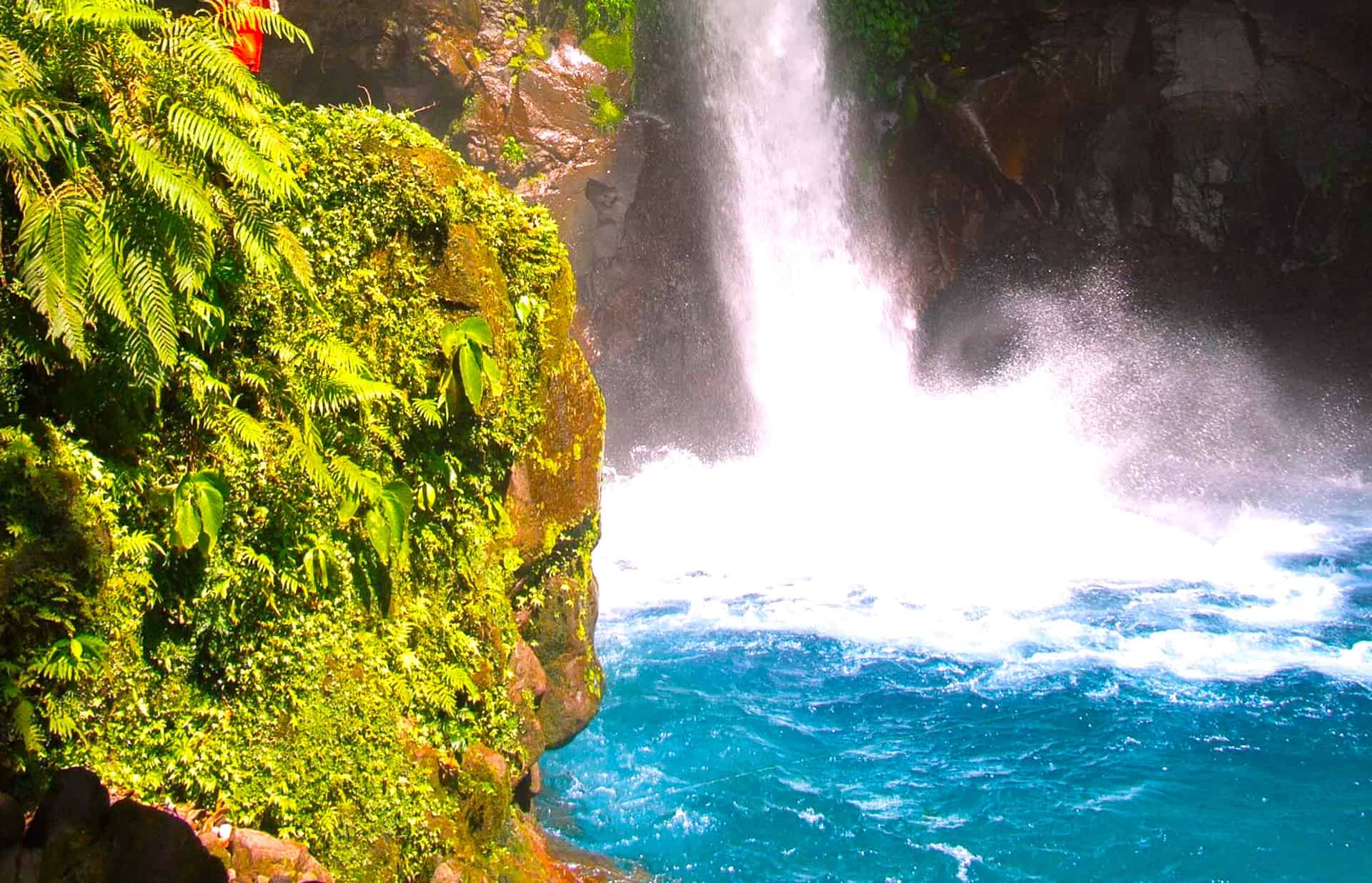
Top 10 Questions and Answers about Dumaguete
- What is Dumaguete best known for?
- Dumaguete is known as the "City of Gentle People." It's renowned for Silliman University, its vibrant seafront boulevard, rich cultural heritage, and as a gateway to nearby natural attractions like Apo Island.
- How do I get to Dumaguete?
- Dumaguete is accessible by air with flights from major cities in the Philippines. The city also has a port with ferry connections to neighboring islands like Cebu and Siquijor.
- What are the best places to visit in Dumaguete?
- Top places include Rizal Boulevard, Silliman University and its Anthropology Museum, the Dumaguete Belfry, and nearby natural attractions like Apo Island and the Twin Lakes of Balinsasayao & Danao.
- What are the popular activities in Dumaguete?
- Popular activities include snorkeling and diving (especially in Apo Island), strolling along Rizal Boulevard, exploring local markets and historic sites, and enjoying the city's vibrant food scene.
- What is the best time to visit Dumaguete?
- The best time is usually between November and April, which is the dry season, offering pleasant weather suitable for outdoor activities and exploring the city.
- Is Dumaguete a good place for expatriates to live?
- Yes, Dumaguete is popular among expatriates due to its relaxed lifestyle, low cost of living, friendly community, and good healthcare and educational facilities.
- What are the local delicacies of Dumaguete?
- Local delicacies include "budbud" (sticky rice delicacies), "silvanas" (a frozen cookie dessert), and fresh seafood dishes. The city is also known for its "Sans Rival" cake.
- Can I go island hopping from Dumaguete?
- Yes, Dumaguete is a great base for island hopping, with easy access to neighboring islands like Apo, Siquijor, and Cebu, offering beautiful beaches and excellent diving spots.
- What are the shopping options in Dumaguete?
- Dumaguete offers various shopping options from modern malls to local markets. Popular places include Robinsons Mall, Lee Plaza, and the Public Market for local goods and crafts.
- Is English widely spoken in Dumaguete?
- Yes, English is widely spoken in Dumaguete, especially in tourist areas, educational institutions, and businesses, making it easy for English-speaking visitors to communicate.
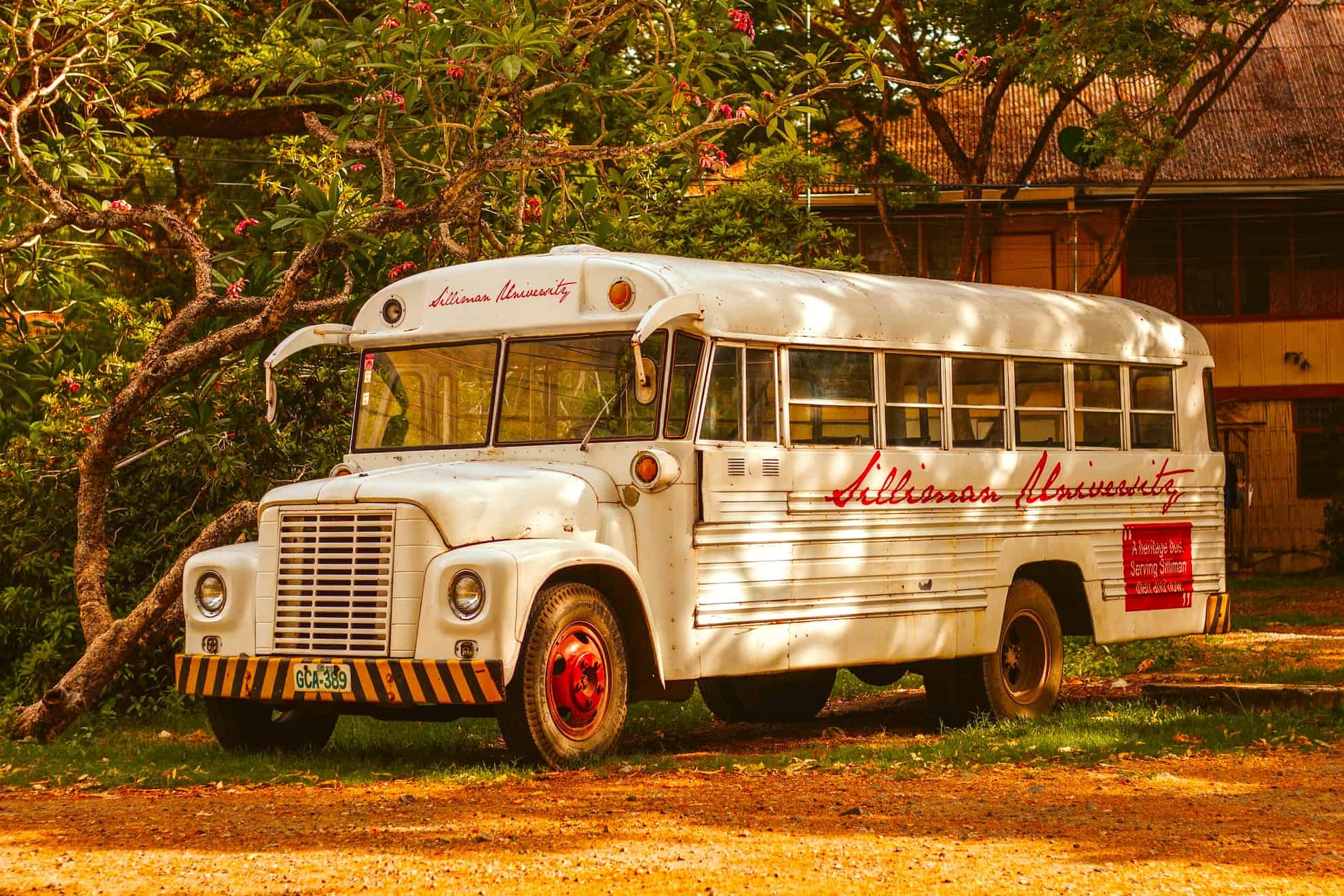
Getting to Dumaguete
Getting to Dumaguete, the charming city in the Philippines known for its serene ambiance and rich cultural heritage, is relatively straightforward, whether you're traveling domestically or internationally. Here are the common ways to reach Dumaguete:
By Air:
- Direct Flights:
- The most convenient way to reach Dumaguete is by air. Dumaguete-Sibulan Airport (IATA: DGT) serves the city and nearby areas.
- There are direct flights to Dumaguete from major cities in the Philippines, such as Manila, Cebu, and Davao. These flights are operated by airlines like Philippine Airlines, Cebu Pacific, and AirAsia.
- The flight duration from Manila to Dumaguete is approximately 1 hour and 15 minutes.
- International Travelers:
- For international travelers, the common route is to fly into a major international hub like Manila's Ninoy Aquino International Airport (NAIA) or Mactan-Cebu International Airport, and then take a domestic flight to Dumaguete.
By Sea:
- Ferry Services:
- Dumaguete is accessible by sea, with its port connecting to various islands in the Philippines.
- Regular ferry services are available from Cebu, Siquijor, and Bohol, among other locations. The ferry companies include OceanJet, Montenegro Lines, and others.
- The journey time varies depending on the departure point. For example, a ferry ride from Cebu to Dumaguete typically takes around 4 to 6 hours.
By Land and Sea (For Those in the Visayas and Mindanao Regions):
- Combination of Bus and Ferry:
- Travelers from other parts of the Visayas and Mindanao regions can take a bus to a port city like Cebu or Bacolod and then continue by ferry to Dumaguete.
- This option is often chosen for its affordability and the scenic views it offers.
Upon Arrival in Dumaguete:
- Transportation from the Airport or Port:
- From Dumaguete Airport, you can take a tricycle, taxi, or rent-a-car to reach your destination in the city. The airport is just about 15 minutes away from the city center.
- From the Dumaguete port, tricycles and taxis are readily available to take you to various parts of the city.
Tips for Travelers:
- Booking in Advance:
- It's advisable to book your flights or ferry tickets in advance, especially during peak travel seasons like holidays and festival times.
- Check Weather and Local Conditions:
- Always check the weather forecast and local travel advisories, as sea travel can be affected by weather conditions.
Getting to Dumaguete is a journey that offers both convenience and the opportunity to experience the diverse beauty of the Philippines. Whether arriving by air or sea, the travel to Dumaguete is part of the adventure that leads to exploring this beautiful city.
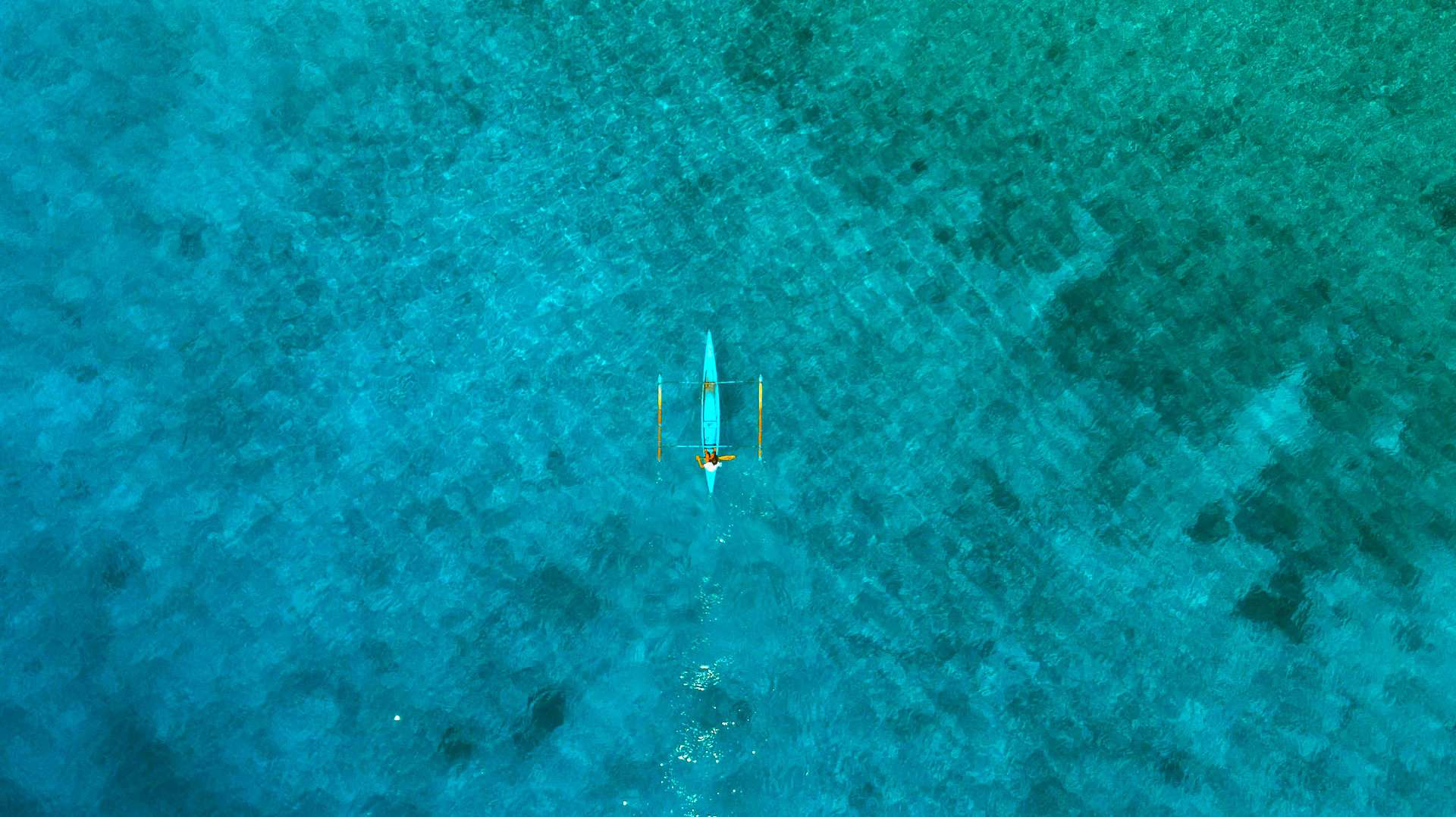
Why you should visit Dumaguete
Dumaguete: A Hidden Gem in the Philippines
Introduction to Dumaguete
Nestled in the heart of the Philippines, Dumaguete stands as a beacon of culture, serenity, and natural beauty. Often referred to as the "City of Gentle People," Dumaguete exudes a charm that is both subtle and captivating. This article aims to take you through the many facets of Dumaguete, showcasing why it should be on every traveler's bucket list.
The People: The Heart of Dumaguete
The moniker "City of Gentle People" is not an empty accolade. The locals in Dumaguete are known for their warm hospitality and friendly demeanor. Visitors are often struck by the genuine smiles and the eagerness of Dumaguetenos to help. This warmth extends beyond mere pleasantries, as the locals are keen to share their stories and culture, making you feel immediately at home.
Historical and Cultural Landmarks
Dumaguete is not just about scenic beauty; it's a hub for cultural and historical exploration. The iconic Silliman University, one of the oldest American-established universities in Asia, is a must-visit. Its sprawling campus is a blend of colonial architecture and lush greenery, reflecting the city’s rich history. The St. Catherine of Alexandria Cathedral, another landmark, stands as a testament to the city's religious heritage, offering a serene place for contemplation.
Natural Wonders and Adventures
The beauty of Dumaguete extends to its natural surroundings. The nearby Apo Island is a haven for divers and snorkelers, known for its vibrant coral reefs and diverse marine life. The Manjuyod Sandbar, often dubbed as the Maldives of the Philippines, presents a breathtaking vista of pristine white sands and clear blue waters. For the more adventurous, a trek to the Casaroro Falls offers a rewarding experience with its stunning cascade amidst lush forests.
Culinary Delights
No visit to Dumaguete is complete without indulging in its culinary offerings. The city is famous for its Silvanas and Sans Rival, sweet treats that are a perfect blend of buttery goodness and crunchy texture. Local eateries and restaurants serve up a variety of dishes, from fresh seafood to hearty Filipino classics, ensuring that every meal is a delightful experience.
Festivals and Events
Dumaguete’s calendar is dotted with vibrant festivals and events. The Sandurot Festival, which celebrates the city’s rich cultural diversity, is a spectacle of colorful dances and lively music. The Buglasan Festival, known as the Festival of Festivals, showcases the best of Negros Oriental, with street dances, beauty pageants, and food fairs.
Tranquil Yet Vibrant Lifestyle
What sets Dumaguete apart is its unique blend of a laid-back atmosphere with a vibrant lifestyle. The Rizal Boulevard, a favorite hangout spot for both locals and tourists, offers a picturesque view of the sea, lined with cafes and restaurants. The city's nightlife is equally inviting,
with a range of bars and music venues that showcase local talent and provide a lively atmosphere for socializing and enjoyment.
Educational Haven
Dumaguete is not just a tourist destination; it's also an educational hub. Home to four universities and numerous colleges, the city has a youthful and intellectual vibe. This influx of students from around the country and the world adds a dynamic and diverse character to Dumaguete, making it a melting pot of ideas and cultures.
Eco-Tourism and Sustainability
Dumaguete is at the forefront of eco-tourism and sustainability in the Philippines. The city and its surrounding areas offer numerous eco-friendly activities, such as whale and dolphin watching, bird watching in the nearby forests, and visits to community-run conservation projects. This commitment to sustainability not only preserves the natural beauty of Dumaguete but also ensures that tourism has a positive impact on the local community and environment.
Shopping and Local Crafts
For those who love shopping, Dumaguete offers a unique experience. Local markets and boutiques are filled with crafts made by local artisans, from handmade jewelry to woven fabrics. These items are not just souvenirs but are pieces of Dumaguete's rich cultural heritage. The city also hosts regular night markets, where you can find everything from vintage clothes to local street food, making shopping in Dumaguete a unique and enjoyable experience.
Accessibility and Accommodation
Getting to and around Dumaguete is hassle-free, with the city being well-connected by air and sea. Once in Dumaguete, there's a range of accommodations to suit every budget and preference, from luxurious resorts to cozy guesthouses. The city's size makes it easy to explore, whether you prefer to walk, bike, or take a local tricycle.
Conclusion: Dumaguete, a Must-Visit Destination
Dumaguete, with its unique blend of natural beauty, rich culture, warm people, and vibrant atmosphere, is more than just a destination; it's an experience. Whether you're looking for adventure, relaxation, cultural immersion, or culinary delights, Dumaguete offers it all. It's a city that welcomes you with open arms and leaves you with memories that last a lifetime. So, pack your bags and set off on a journey to discover the wonders of Dumaguete, a hidden gem in the Philippines.
Top 10 Hotels in Dumaguete
Dumaguete, known for its charm and beauty, offers a range of top hotels that cater to different preferences and budgets. Here's a list of some of the best hotels in Dumaguete City as of 2024:
- Casa Rubin: A specialty hotel that offers an excellent medium-budget option with clean and spacious rooms. It's conveniently located near Robinson Mall, perfect for those seeking quality accommodation at a reasonable price.
- Sam's Bed and Breakfast: A specialty B&B offering a cozy stay. It's ranked highly for value among specialty hotels in the city.
- La Fusion Garden Resort: A specialty inn that provides a tranquil setting, ideal for a relaxing getaway.
- ESE House: Another specialty B&B, known for its comfortable and welcoming atmosphere.
- Emman Hotel: A specialty hotel that stands out for its service and amenities, catering to various needs of its guests.
- La Contour Pension Inn & Masaje: This specialty inn offers a unique blend of accommodation and relaxation services.
- Private Garden Beach & Scuba Diving Resort: Perfect for adventure lovers, this resort offers both beach relaxation and scuba diving experiences.
- Monica Homestay: A more intimate and personalized lodging option, ideal for travelers seeking a home-like environment.
- Wow Hotel: A specialty resort known for its impressive facilities and services.
- Luis Miguel's Place: A specialty inn that offers a blend of comfort and convenience, suitable for both short and long stays.
Additionally, for those looking for luxury accommodations, Dumaguete also has excellent 5-star hotel options:
- Lufian Dormitel: Known for its convenience, cleanliness, and security, it's a great option for those seeking a luxurious stay.
- Port Royale Waterpark Resort: Offers a unique experience with its waterpark, perfect for families or those looking for fun activities.
- The Henry Resort Dumaguete: A top-rated resort with comfortable rooms, beautiful gardens, pools, and fantastic food.
- Hotel Essencia: Centrally located, it provides easy access to the heart of Dumaguete. Known for its clean rooms, excellent service, and good food.
- Go Hotels Dumaguete: A well-regarded hotel known for its friendly staff and excellent service, exceeding many guests' expectations.
- Fiesole Residence Inn: Offers a simple, clean, and accessible experience, ideal for business travelers or those looking for a safe and convenient place to stay.
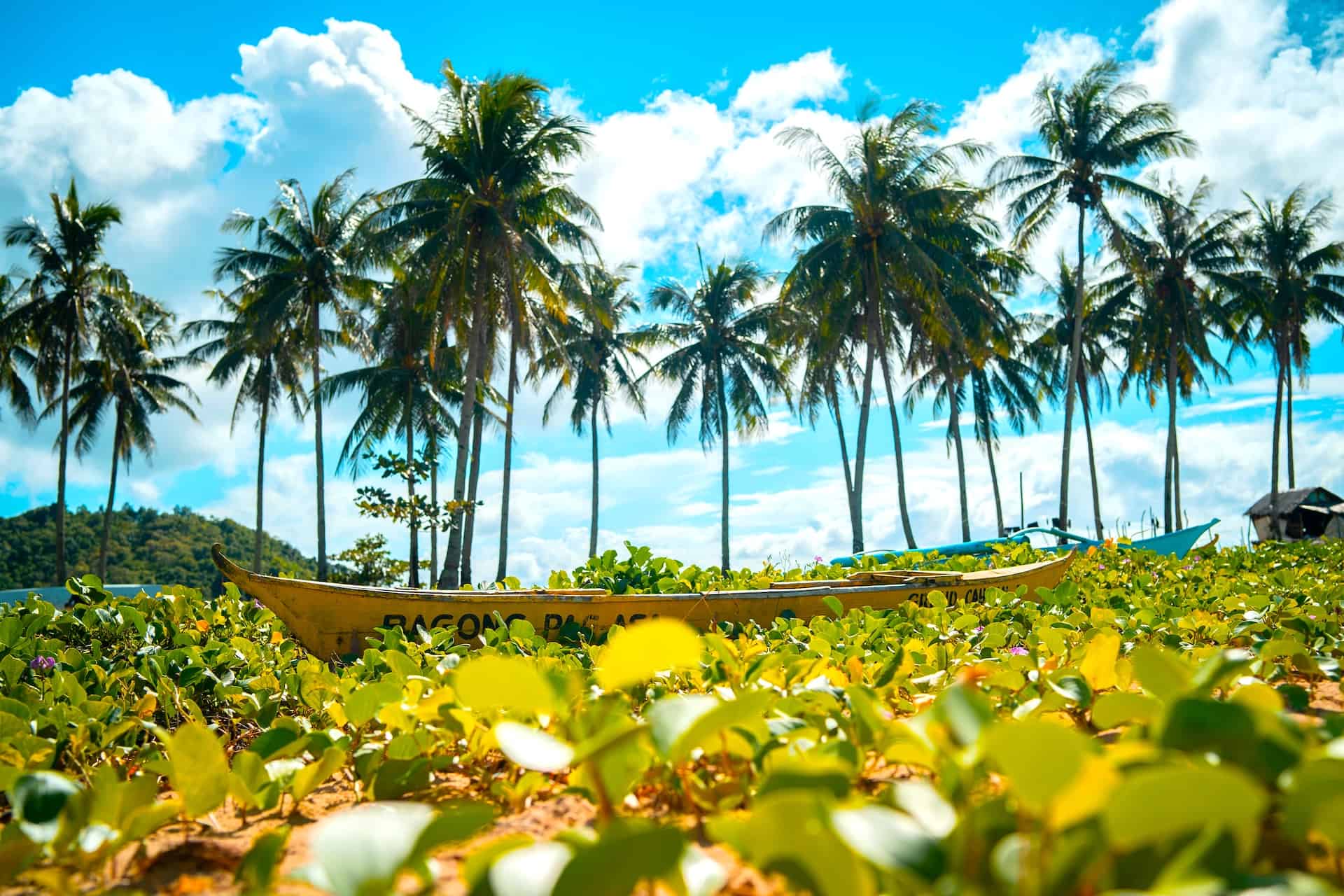
Dumaguete Facts
1: Introduction to Dumaguete
Nestled in the heart of the Philippines, Dumaguete, often hailed as the country' 'City of Gentle People,' stands as a beacon of culture, education, and natural beauty. This vibrant city, the capital of Negros Oriental, stretches along the shores of the Negros Island, offering a blend of serene mountain landscapes and a bustling urban atmosphere. Dumaguete, with its unique charm, has been a magnet for tourists, students, and locals alike, making it one of the most intriguing cities to visit in the country, the Philippines.
Dumaguete City's story is one of resilience and evolution. Established as a small coastal town, it has grown over centuries into a thriving urban center. Its name, believed to have been derived from the Visayan word 'dagit,' which means 'to snatch,' is thought to refer to the frequent raids by marauding pirates in its early history. Today, Dumaguete stands as a testament to its ability to transform challenges into opportunities for growth and development.
Geographically, Dumaguete is positioned on the south-eastern half of Negros Island and faces the neighboring island of Cebu, which lies located further south and west, across the Tañon Strait. This strategic location has historically made Dumaguete a gateway to the neighboring islands, and a crucial point for trade and cultural exchange. The city’s proximity to Cebu City, a major urban center, adds to its accessibility and appeal, further integrating Dumaguete into the region's economic and cultural fabric.
Dumaguete City is not just known for its geographical significance; it is also a hub of education. Silliman University, the first Protestant school and one of the oldest American private universities in Asia, is located here. The presence of this prestigious institution has transformed Dumaguete into a melting pot of cultures and ideas, attracting students and academicians from across the Philippines and beyond. The university's influence extends beyond its campus, spilling into the city's streets, cafes, and public spaces, making education a palpable part of Dumaguete's identity.
Furthermore, the city’s culture is heavily influenced by its rich history. Notable landmarks like Silliman Hall and the iconic Rizal Boulevard, named after the Philippine national hero Dr. Jose Rizal, are testaments to Dumaguete's colonial past and its journey towards modernity. These sites are not just tourist attractions but are integral to the city’s narrative, telling stories of the past while continuing to be a part of the residents' daily lives.
Dumaguete’s population, a harmonious mix of locals, expatriates, and students, contributes to the city's reputation as a place of gentle people. The locals are known for their warmth and hospitality, welcoming visitors with open arms and bright smiles. This gentle demeanor is not just an anecdote but a lifestyle, deeply ingrained in the city's culture and social interactions.
In terms of connectivity, Dumaguete is well-linked by air and sea. The Dumaguete Airport, though small, provides daily flights to and from major cities like Manila and Cebu, ensuring the city is easily reachable. For sea travel, the Dumaguete port offers ferry services to Cebu City and other neighboring islands like Apo Island and Siquijor, making it a convenient hub for exploring the region.
Dumaguete is not just a city; it's a canvas of experiences. From the bustling activity around the city center to the serene ambiance of its seafront, it offers contrasts that are both intriguing and harmonious. The city center, a blend of old and new, is home to a range of establishments - from traditional markets to modern coffee shops, all coexisting in a uniquely Dumaguete way. This blend of the traditional and contemporary is also evident in the city's culinary scene, where local delicacies like fried ice cream and the famous Sans Rival cake offer a taste of Dumaguete's rich gastronomic heritage.
Moreover, Dumaguete’s location on the map of the Philippines gives it a strategic advantage. It is an ideal base for exploring the neighboring islands and enjoying the natural wonders of the region. The city serves as a starting point for trips to Cebu Island, with its white sand beaches, or to Apo Island, renowned for its diving spots and rich marine life.
The city's appeal extends beyond its physical attributes. Dumaguete is often referred to as the perfect place for those seeking a balance between urban convenience and natural beauty. The city offers a range of accommodations, from luxurious hotels to budget-friendly options, all providing a comfortable stay at reasonable prices. For those seeking longer stays, new hotels and residential options are continually emerging, catering to the growing demand from both locals and tourists.
Dumaguete's charm is also evident in its commitment to sustainable living. The presence of a geothermal power plant in the region underscores the city's efforts towards environmental sustainability. This approach is a point of pride for Dumaguete, reflecting a consciousness towards preserving the natural beauty that surrounds it.
In conclusion, Dumaguete is more than just a city; it's a living, breathing entity that embodies a unique blend of history, culture, education, and natural beauty. Whether you are visiting Dumaguete for its educational opportunities, its tourist spots, or simply to experience the lifestyle of its gentle people, the city has something to offer everyone. With its strategic location, rich cultural heritage, and warm community, Dumaguete is not just a destination but a journey into the heart of the Philippines.
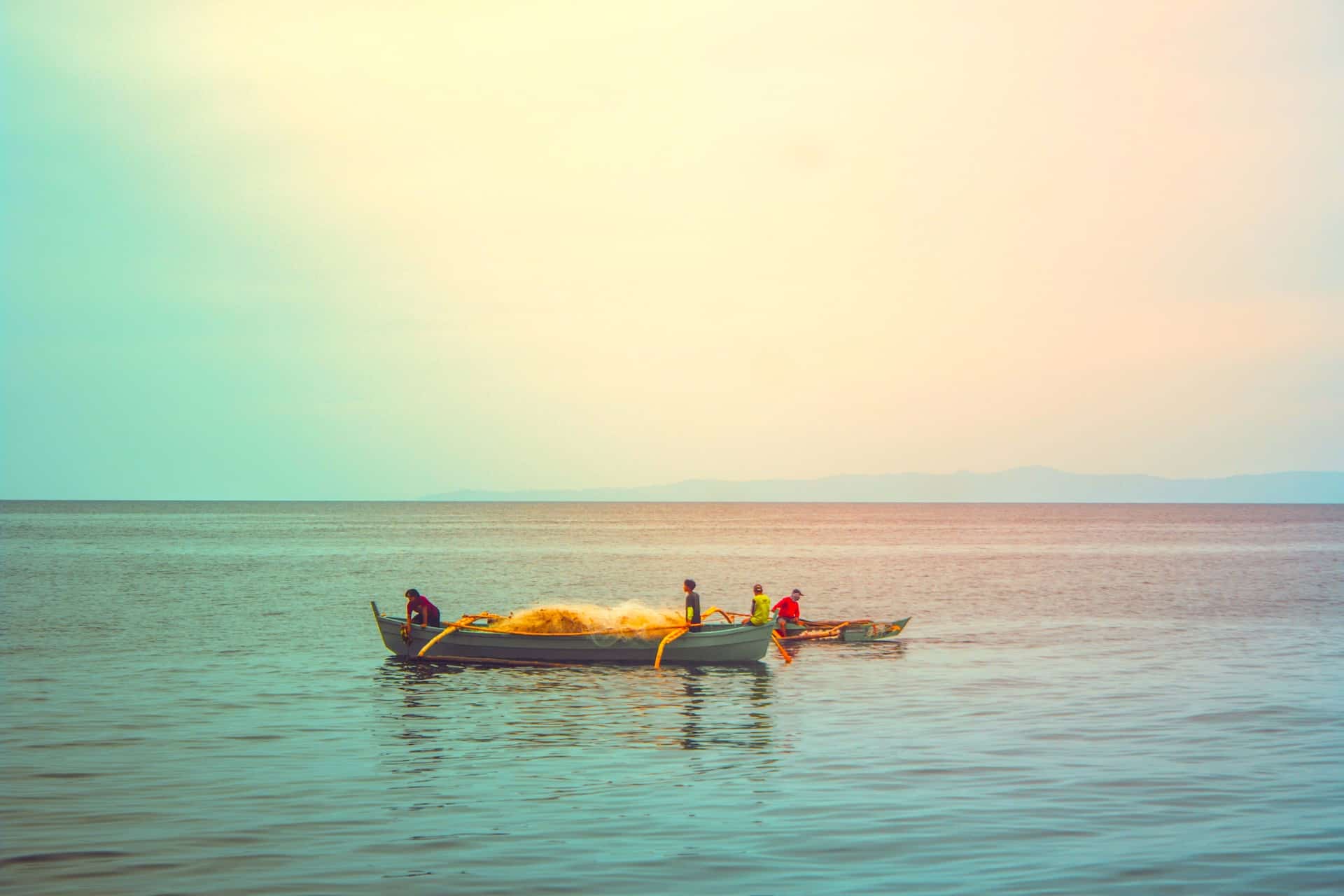
2: The Heart of the City: Exploring Dumaguete’s City Center
In the heart of Negros Oriental lies Dumaguete City, a place where history, culture, and modernity converge. Known affectionately as the 'City of Gentle People,' Dumaguete's city center is a vibrant tapestry of life, embodying the spirit of the Philippines in its most authentic form. As we delve into the heart of this charming city, we discover what makes Dumaguete not just a geographical location, but a home to its diverse populace and a captivating destination for visitors from around the world.
The city center of Dumaguete is more than just a point on a map; it's the lifeblood of the community. From the historic Rizal Boulevard to the bustling markets and quaint coffee shops, every corner of the city center tells a story. It's here that the pulse of Dumaguete beats the strongest, with locals and tourists alike soaking in the city’s unique blend of old-world charm and contemporary dynamism.
One cannot talk about Dumaguete's city center without mentioning Rizal Boulevard. Stretching along the coastline, this iconic street is a favorite among both locals and tourists. Named after the Philippine national hero, Dr. Jose Rizal, the boulevard is a perfect place for a leisurely stroll, offering breathtaking views of the sea and the neighboring island of Cebu. Lined with palm trees, restaurants, and bars, Rizal Boulevard is not just a scenic spot but a social hub, coming alive particularly in the evenings as people gather to enjoy the cool sea breeze and the vibrant atmosphere.
The city center of Dumaguete also serves as a cultural hub, showcasing the rich history and heritage of the city. Prominent among these is Silliman University, a cornerstone of Dumaguete’s identity. Established as the first Protestant school in the Philippines and one of the oldest American private universities in Asia, Silliman University's influence on Dumaguete is profound. The university's campus, with its blend of old, colonial-style buildings and modern facilities, adds a unique character to the city center. Silliman Hall, a historic landmark, is not just a building but a symbol of the educational legacy that Dumaguete proudly carries.
Moreover, Dumaguete’s city center is a melting pot of culinary delights. Here, one can savor the local delicacies, including the famous fried ice cream and the much-loved Sans Rival cake, a buttery, nutty dessert that has become synonymous with Dumaguete's culinary scene. The city’s coffee shops and restaurants, while offering a range of international cuisines, also provide a taste of the local flavors, making Dumaguete a gastronomic delight for food enthusiasts.
Shopping and commerce are vital aspects of life in Dumaguete's city center. The public markets buzz with activity, offering everything from fresh produce to local crafts. These markets are not just commercial spaces but social venues where locals interact, share news, and maintain the tight-knit community feel that Dumaguete is known for. Additionally, modern establishments like the City Mall Dumaguete have emerged, providing a contrast to the traditional markets and catering to the city's growing urban populace.
Transportation in Dumaguete is a unique experience in itself. The city’s public transport system, primarily consisting of tricycles and jeepneys, is an efficient and affordable way to navigate the city center. These modes of transport are not just practical but are part of the city’s charm, offering an authentic local experience for visitors.
Dumaguete’s city center is also a testament to the city's commitment to sustainable development. The geothermal power plant nearby reflects this commitment, ensuring that the city progresses while minimizing its ecological footprint. This balance between development and sustainability is evident in the city center's layout, which harmoniously blends urban structures with green spaces and coastal areas.
The city center of Dumaguete is not just a commercial and cultural hub; it is a place where community life thrives. The streets of Dumaguete are where friendships are formed, ideas are exchanged, and the gentle nature of its gentle people, is most apparent. The warmth and hospitality of the locals are palpable, making everyone feel at home. This sense of community is a defining characteristic of Dumaguete, setting it apart as a city that values human connections and cultural richness.
Furthermore, the city center's strategic location in Dumaguete makes it a gateway to the rest of the country, Negros Oriental and neighboring regions. With the Dumaguete Airport and the city’s port, traveling to and from the city center is convenient, connecting Dumaguete to other parts of the Philippines and beyond. This accessibility has played a significant role in the city's growth as a tourist destination, educational center, and a business hub.
In addition, Dumaguete’s city center is an ideal starting point for exploring the nearby attractions. Day trips to Apo Island, known for its pristine diving spots and vibrant marine life, start from the city. The proximity to other islands such as Cebu and Siquijor offers opportunities for island hopping and experiencing the diverse landscapes and cultures of the Philippines.
As the sun sets over Dumaguete's city center, the streets light up, and the city takes on a different persona. The nightlife here is a mix of laid-back charm and lively entertainment. From live music venues to quiet seaside bars, the city center offers a variety of options for evening entertainment. These night-time activities reflect Dumaguete’s youthful spirit, fueled by the presence of university students and young professionals.
In conclusion, the city center of Dumaguete is a microcosm of the city itself - a place where history meets modernity, education blends with culture, and the warmth of its people permeates every aspect of life. It is here, in the heart of Dumaguete, that one truly experiences the essence of this remarkable city. Whether it’s walking along Rizal Boulevard, exploring the historic campus of Silliman University, or enjoying the local cuisine, the city center of Dumaguete offers a rich, multi-faceted experience that leaves a lasting impression on all who visit.
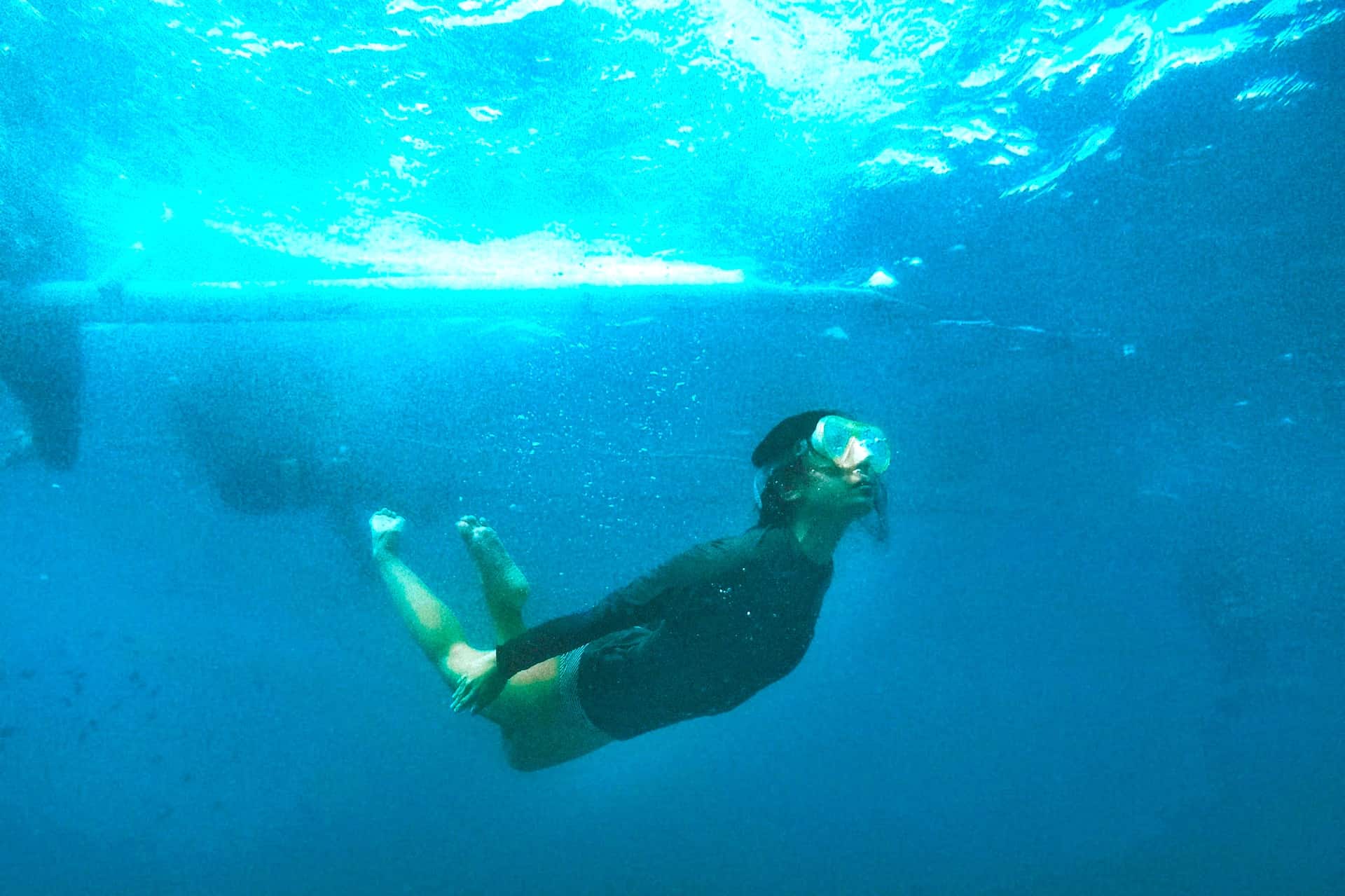
3: Dumaguete and Its Neighbors: A Tale of Islands and Seas
Dumaguete City, the charming capital of Negros Oriental, is not just a standalone paradise but also a gateway to an array of breathtaking neighboring islands. This section explores how Dumaguete, with its strategic location on the southeastern half of Negros Island, serves as a pivotal point for experiencing the rich cultural and natural beauty of the Philippines, especially its relationship with Cebu City, Cebu Island, and the enchanting Apo Island.
3.1 Dumaguete’s Maritime Connection
The maritime heritage of Dumaguete plays a crucial role in its identity. Nestled against the backdrop of the vast sea, the city overlooks the strait separating Negros Island from the neighboring island of Cebu. This proximity to the sea has historically been a boon for Dumaguete, fostering trade and cultural exchanges that have enriched the city’s character. The Dumaguete port, a bustling hub, is not just a functional facility but a symbol of the city's openness to the world. From here, ferries and boats sail to and from Cebu City and other islands, weaving a network of connections that bind the communities of these islands.
3.2 Dumaguete and Cebu: A Symbiotic Relationship
Dumaguete's relationship with Cebu City, a major urban center across the sea, is particularly noteworthy. Cebu, known for its historical significance and urban sophistication, complements Dumaguete’s laid-back charm. The two cities, though contrasting in their pace and lifestyle, share a deep cultural and historical bond that is evident in their festivals, cuisine, and languages. The ferry services, including the Cebu to Dumaguete ferry, serve as vital links for people and goods, fostering a symbiotic relationship that benefits both cities. The journey across the sea, a scenic route traversing the azure waters, is an experience in itself, offering breathtaking views and a sense of adventure.
3.3 Apo Island: A Diver’s Paradise
A short boat ride from Dumaguete lies Apo Island, a gem in the Visayan Sea and a world-renowned diving destination. Famous for its stunning coral reefs and diverse marine life, Apo Island is a testament to the Philippines’ commitment to marine conservation. The island, with its clear waters and abundant sea life, offers a pristine environment for snorkeling and scuba diving. Visiting Apo Island is a must for anyone traveling to Dumaguete, as it presents an opportunity to witness the harmonious coexistence of humans and nature. The island’s community, though small, plays a significant role in preserving the delicate marine ecosystem, making Apo Island a model for sustainable tourism.
3.4 Air Connectivity: Bridging Islands
While the sea routes play a crucial role in connecting Dumaguete with its neighboring islands, air travel has also significantly contributed to the city’s accessibility. Dumaguete Airport, though modest in size, offers daily flights to major cities like Manila and Cebu, bridging the gap between Dumaguete and other parts of the Philippines. The convenience of air travel has not only boosted tourism but has also facilitated business and educational opportunities, making Dumaguete an increasingly popular destination for both leisure and professional pursuits.
3.5 The Allure of Neighboring Islands
Beyond Cebu and Apo Island, Dumaguete’s neighboring islands each offer unique experiences. From the white sand beaches of Cebu Island to the mystical charm of Siquijor, these islands are treasures waiting to be explored. Each island, with its distinct landscape and culture, adds to the allure of visiting Dumaguete. For travelers, the ease of island hopping from Dumaguete presents an opportunity to experience the diverse beauty of the Philippine archipelago.
3.6 Cultural Exchanges and Festivals
The cultural exchanges between Dumaguete and its neighboring islands are most vividly seen during festivals. Events like the Sandurot Festival in Dumaguete and the Sinulog Festival in Cebu showcase a blend of indigenous, Spanish, and modern influences. These festivals are not just celebrations but platforms for cultural integration, where the traditions of different islands are shared and appreciated. The participation of people from neighboring islands in Dumaguete’s festivals, and vice versa, is a testament to the strong communal bonds that transcend geographical boundaries.
3.7 Culinary Influences
The culinary scene in Dumaguete is also a reflection of its connections with neighboring islands. While local delicacies like fried ice cream and Sans Rival cake are quintessentially Dumaguete, the influence of neighboring cuisines is evident in the city’s food landscape. From Cebuano dishes to fresh seafood brought in from the surrounding seas, the variety of food in Dumaguete is a gastronomic representation of the region's diversity.
3.8 Economic and Educational Ties
The economic and educational ties between Dumaguete and its neighboring regions are another crucial aspect of their relationship. As home to Silliman University, one of the oldest and most prestigious educational institutions in the Philippines, Dumaguete attracts students from across the region, including Cebu and other islands. This influx of students brings a vibrant, youthful energy to the city and fosters a sense of regional camaraderie. Economically, the trade of goods and services between Dumaguete and neighboring areas contributes to the city’s growth and sustains its dynamic marketplace.
3.9 Environmental Stewardship
The shared environmental concerns and stewardship are also key elements binding Dumaguete with its neighboring islands. Initiatives like marine conservation in Apo Island are replicated in various forms across the region, emphasizing the collective responsibility towards preserving the natural beauty of the Visayan Sea and its surroundings. This shared commitment to the environment further strengthens the bonds between Dumaguete and its neighbors.
3.10 A Gateway to Adventure
Ultimately, Dumaguete serves as a gateway to a world of adventure and discovery. Whether it’s exploring the underwater marvels of Apo Island, experiencing the urban vibrancy of Cebu City, or discovering the untouched beauty of other neighboring islands, Dumaguete is the perfect starting point. The city’s strategic location, coupled with its own charm and hospitality, makes it an ideal hub for travelers looking to explore the broader region.
In conclusion, Dumaguete’s relationship with its neighboring islands is a multifaceted one, encompassing cultural, economic, educational, and environmental dimensions. This inter-island synergy not only enhances Dumaguete’s appeal but also contributes to the richness of the entire region. From the busy ports and airports to the colorful festivals and diverse cuisines, Dumaguete stands as a testament to the vibrant interconnectivity of the Philippine archipelago.
4: Educational Hub: Silliman University and Beyond
In the heart of Dumaguete, an intellectual beacon shines brightly, contributing significantly to the city’s identity as a center of learning and culture. This is Silliman University, an institution that not only molds minds but also shapes the very essence of Dumaguete City. In this section, we delve into the profound impact of Silliman University on Dumaguete, exploring its history, influence, and the wider educational landscape of the city.
4.1 The Legacy of Silliman University
Silliman University, the oldest American private university in Asia and the first Protestant school in the Philippines, stands majestically in Dumaguete, embodying a rich history of academic excellence and cultural diversity. Established in 1901 by Presbyterian missionaries, it was named after Dr. Horace Brinsmade Silliman, a philanthropist from New York who generously donated funds for its establishment. Over the years, Silliman has evolved from a small elementary school for boys into a sprawling university, offering a wide range of programs and attracting students from across the Philippines and beyond.
The university's impact on Dumaguete cannot be overstated. It has been a catalyst for the city's transformation into a bustling educational hub, drawing in thousands of students every year. The presence of these students adds a vibrant, youthful energy to Dumaguete, influencing its social, cultural, and economic spheres.
4.2 Architectural and Cultural Landmarks
The Silliman campus is a blend of the old and the new, where historic buildings coexist with modern facilities. Notable landmarks such as Silliman Hall, a stately structure built in the early 1900s, now houses the Silliman University Anthropology Museum. The hall, with its American colonial architecture, stands as a symbol of the university’s enduring legacy.
Another iconic structure is the Luce Auditorium, the largest theater outside Metro Manila. This venue hosts a plethora of events, including concerts, plays, and seminars, making it a cultural hub not just for the university but for Dumaguete City as a whole.
4.3 Academic Excellence and Diversity
Academically, Silliman University is renowned for its diverse offerings, ranging from the arts and humanities to the sciences and technology. Its programs are designed to foster critical thinking, innovation, and social responsibility among its students. The university's commitment to holistic education is evident in its curriculum, which integrates liberal arts education with professional and technical training.
The diversity of the student body at Silliman is a testament to its inclusive ethos. Students from different regions of the Philippines and various countries around the world converge in Dumaguete, creating a melting pot of cultures and ideas. This diversity enriches the educational experience at Silliman, preparing students to be global citizens.
4.4 Community Engagement and Environmental Stewardship
Silliman University is deeply committed to community engagement and environmental stewardship. Its programs often extend beyond the campus, involving students in community development projects and environmental conservation efforts. The university's advocacy for sustainable practices is reflected in its academic and operational policies, aligning with Dumaguete’s own efforts towards environmental sustainability.
4.5 The Economic Impact of Silliman University
The economic impact of Silliman University on Dumaguete is significant. The influx of students and faculty members stimulates local businesses, including restaurants, shops, and accommodation providers. The university's events and activities also attract visitors to the city, contributing to the tourism sector. Moreover, as a major employer in the city, Silliman plays a crucial role in Dumaguete’s economy.
4.6 Beyond Silliman: Other Educational Institutions in Dumaguete
While Silliman University is undoubtedly the most prominent, Dumaguete hosts several other educational institutions that contribute to its reputation as an academic center. These include Negros Oriental State University, Foundation University, and St. Paul University Dumaguete, among others. Each institution brings its unique strengths and specialties, further enriching the educational landscape of the city.
4.7 The Influence on Arts and Culture
The influence of the academic institutions, particularly Silliman University, on the arts and culture scene in Dumaguete is profound. The city has become a hub for artists, writers, and performers, many of whom are associated with the university. Art exhibitions, literary readings, and theater productions are regular occurrences in Dumaguete, fostering a vibrant cultural scene.
4.8 Alumni Contributions
The alumni of Silliman University and other Dumaguete-based institutions have gone on to make significant contributions in various fields, both in the Philippines and internationally. These individuals often maintain a strong connection to the city, returning to support community initiatives and mentor the next generation of students. This ongoing relationship between alumni and the city helps perpetuate a cycle of growth and development.
4.9 Challenges and Opportunities
Like any educational institution, Silliman University and other schools in Dumaguete face challenges, including adapting to technological advancements and meeting the evolving needs of students. However, these challenges also present opportunities for innovation and growth. The adaptability of these institutions, their ability to evolve while maintaining their core values, will continue to shape their role in Dumaguete and the broader educational landscape.
4.10 A Beacon of Learning in the Philippines
In conclusion, Silliman University, together with other educational institutions in Dumaguete, forms the backbone of the city’s identity as a center of learning and culture. The impact of these institutions extends beyond the confines of their campuses, permeating various aspects of life in Dumaguete. From fostering academic excellence to driving economic growth and cultural development, their role is pivotal. As Dumaguete continues to evolve, the influence of its academic institutions will undoubtedly remain a defining feature, continuing to attract students, scholars, and visitors from across the globe.
5: Festivals and Celebrations: The Cultural Fabric of Dumaguete
Dumaguete, a city renowned for its educational institutions and serene ambiance, is also a vibrant tapestry of festivals and cultural celebrations. These events are not just mere gatherings; they are the soul of the city, reflecting the rich heritage and lively spirit of Dumaguete's people. In this section, we dive into the festive heart of Dumaguete, exploring the major festivals that paint the city with colors of joy, tradition, and unity.
5.1 The Sandurot Festival: A Celebration of Unity and Diversity
The Sandurot Festival, held annually in Dumaguete, is a jubilant celebration that honors the city’s spirit of hospitality and diversity. The word 'Sandurot' translates to ‘coming together’, and true to its name, the festival is a convergence of cultures, symbolizing the harmonious blend of Dumaguete’s indigenous, Hispanic, and modern influences. The streets come alive with colorful parades, lively music, and dance performances that tell stories of the city’s history and its people's friendly nature.
Participants adorned in vibrant costumes dance to rhythmic beats, while locals and tourists alike are swept up in the infectious energy of the festivities. The Sandurot Festival is not just a tourist attraction; it’s a vital part of Dumaguete’s identity, fostering a sense of community and belonging among its residents.
5.2 The Buglasan Festival: Negros Oriental’s Festival of Festivals
While the Sandurot Festival is specific to largest city of Dumaguete, the Buglasan Festival is a grander affair, often dubbed the ‘Festival of Festivals’ of Negros Oriental. It is a time when the entire province comes together, with each town showcasing its unique heritage and traditions. Dumaguete, being the capital and largest city here, plays a central role in the festivities.
The Buglasan Festival is a spectacular showcase of the province’s rich cultural tapestry. It features street dancing, agricultural shows, beauty pageants, and a variety of competitions. The festival is a vivid display of the Negrenses' creativity, resilience, and communal spirit. For visitors, Buglasan offers an immersive experience into the cultural heart of Negros Oriental, with Dumaguete at its center.
5.3 Christmas in Dumaguete: A Season of Joy and Giving
Christmas in Dumaguete is a magical time. The city is adorned with lights and decorations, creating a festive atmosphere that captures the joy of the season. The celebration of Christmas here is a blend of religious tradition and modern revelry. Midnight masses, nativity scenes, and caroling are integral parts of the celebration, reflecting the city’s strong Christian heritage.
The Christmas season is also a time for community outreach and charity, with various organizations and groups organizing events to help the less fortunate. This season exemplifies the ‘gentle’ nature of Dumaguete’s people, their warmth, and their spirit of giving.
5.4 Other Cultural and Religious Celebrations
Apart from the major festivals, Dumaguete hosts several other cultural and religious events throughout the year. These include the Feast of St. Catherine of Alexandria, the city’s patron saint, and Holy Week observances, which are marked with solemnity and reverence. Each of these celebrations adds to the cultural richness of Dumaguete, providing insights into the city’s traditions and the faith of its people.
5.5 The Impact of Festivals on Tourism and Economy
Festivals in Dumaguete are not only cultural events but also significant drivers of tourism and economic activity. They attract visitors from across the Philippines and around the world, boosting local businesses, particularly in the hospitality and retail sectors. Hotels, restaurants, and shops experience a surge in customers during these events, contributing to the city’s economic vitality.
5.6 Preserving Tradition While Embracing Modernity
One of the remarkable aspects of Dumaguete’s festivals is the balance they strike between tradition and modernity. While deeply rooted in history and heritage, these festivals have evolved over time, incorporating contemporary elements to remain relevant and engaging for the younger generations. This adaptability is a testament to the dynamic nature of Dumaguete’s culture.
5.7 Community Involvement and Volunteerism
Festivals in Dumaguete are a product of community effort and volunteerism. Local government, schools, businesses, and civic groups come together to organize these events, showcasing the collaborative spirit of Dumaguete’s residents. This involvement fosters a sense of pride and ownership among the locals, reinforcing their connection to the city and its traditions.
5.8 The Role of Festivals in Cultural Exchange
Festivals in Dumaguete also serve as platforms for cultural exchange. They attract participants and spectators from various parts of the Philippines and the world, promoting an exchange of ideas and traditions. This interaction enriches Dumaguete’s cultural landscape, making it a melting pot of global influences.
5.9 Challenges and Sustainability
Organizing large-scale festivals comes with its challenges, including environmental concerns and the need for sustainable practices. Dumaguete has been proactive in addressing these issues, implementing measures to minimize the environmental impact of its festivals, such as waste management initiatives and eco-friendly policies.
5.10 Conclusion: Festivals as the Heartbeat of Dumaguete
In conclusion, festivals and celebrations are more than just events in Dumaguete; they are the heartbeat of the city. They reflect the city’s history, its diverse cultures, and the warm spirit of its people. These celebrations are vital in maintaining Dumaguete’s cultural heritage, contributing to its economy, and fostering a sense of community. As Dumaguete continues to grow and evolve, these festivals will undoubtedly remain an integral part of the city’s vibrant tapestry, continuing to attract visitors and uniting its residents in joyous celebration.
6: Dumaguete's Culinary Scene: From Fried Ice Cream to Sans Rival
Nestled in the heart of the Visayas, Dumaguete is not only a haven for scholars and tourists but also a paradise for food lovers. The city's culinary landscape offers an eclectic mix of flavors that mirror its rich cultural tapestry. In this section, we will embark on a gastronomic journey through Dumaguete, exploring its traditional delicacies, popular dishes, and unique dining experiences that contribute to the city's charm.
6.1 The Essence of Dumaguete's Cuisine
Dumaguete's cuisine is a blend of various influences, from its indigenous roots to Spanish and American colonial impacts. This melting pot of cultures has given rise to a unique culinary identity that is both diverse and distinctive. The city's coastal location also means that seafood is a staple in many local dishes, providing freshness and flavor that is hard to match.
6.2 Signature Dishes: A Taste of Tradition
One cannot discuss Dumaguete's food scene without mentioning its signature dishes. Among these, the famous "fried ice cream" stands out. Contrary to what its name suggests, this dessert involves a scoop of ice cream that is quickly deep-fried, creating a warm, crispy outer layer while keeping the inside cold and creamy. It is a novel treat that surprises and delights first-time tasters.
Another iconic Dumaguete delicacy is the "Sans Rival" cake. A buttery, nutty dessert made with layers of meringue, buttercream, and chopped cashews, this cake is a legacy of the city's Spanish colonial past. The Sans Rival is more than just a dessert in Dumaguete; it's a culinary emblem that locals take pride in and visitors eagerly seek out.
6.3 The Coffee Shop Culture
Dumaguete's coffee shop scene is vibrant and growing. From quaint, artsy cafes to more modern, sleek coffee houses, each establishment offers a unique atmosphere. These coffee shops are not just places to enjoy a good brew; they are social hubs where locals, students, and tourists gather to chat, work, or simply relax. Many of these cafes also offer a variety of pastries and snacks, including local favorites and international treats.
6.4 Seafood Galore: The Bounty of the Sea
Thanks to its coastal location, Dumaguete is blessed with an abundance of seafood, which is a staple in the local diet. Restaurants and eateries across the city offer a wide range of seafood dishes, from grilled fish to savory stews and soups. The freshness of the seafood in Dumaguete is unparalleled, with many establishments sourcing their ingredients directly from local fishermen.
6.5 Street Food and Local Markets
For those looking to experience authentic Dumaguete cuisine, the street food and local markets are not to be missed. The markets are bustling with vendors selling a variety of local snacks and dishes. Here, one can sample everything from skewered meats to sweet treats, all at very reasonable prices. This street food scene offers a glimpse into the everyday culinary habits of Dumaguete's locals.
6.6 Restaurants and Dining Experiences
Dumaguete's restaurant scene is as diverse as its population. The city boasts a range of dining options, from traditional Filipino eateries to international cuisine. These restaurants cater to all tastes and budgets, ensuring that there is something for everyone. Many establishments also offer scenic views, either of the ocean or the city, making dining in Dumaguete a truly delightful experience.
6.7 Fusion and Innovation
In recent years, Dumaguete's culinary scene has seen a rise in fusion cuisine, with chefs combining traditional Filipino flavors with international techniques and ingredients. This innovation has led to a new wave of dining experiences, offering unique dishes that can only be found in Dumaguete. It reflects the city's openness to new ideas and its ability to adapt and evolve while staying true to its roots.
6.8 Local Ingredients and Sustainable Practices
Dumaguete's food scene is not just about taste but also about sustainability. Many chefs and restaurant owners emphasize the use of local ingredients, supporting local farmers and producers. This focus on locally sourced ingredients not only ensures the freshness of the food but also helps in reducing the carbon footprint associated with food transportation.
6.9 Food Festivals and Culinary Events
Dumaguete also hosts various food festivals and culinary events throughout the year, showcasing the city's rich culinary heritage and contemporary creations. These events are a celebration of food and provide a platform for local chefs and food enthusiasts to share their passion for cuisine. They also offer an opportunity for tourists and locals alike to indulge in a variety of dishes in one place.
6.10 Conclusion: A Culinary Destination
In conclusion, Dumaguete's culinary scene is a reflection of its cultural diversity and rich history. From traditional dishes like fried ice cream and Sans Rival to innovative fusion cuisine, the city offers a plethora of flavors that cater to every palate. The thriving coffee shop culture, the abundance of fresh seafood, and the vibrant street food scene add to the city's gastronomic appeal. For anyone visiting Dumaguete, exploring its culinary landscape is an adventure in itself, offering not just food for the stomach but also for the soul.
7: The Charm of Dumaguete: Rizal Boulevard and City Life
Dumaguete, a city renowned for its serene beauty and rich cultural tapestry, is encapsulated perfectly along the iconic Rizal Boulevard. This bustling waterfront promenade, named after the Philippine national hero Dr. Jose Rizal, serves as the city’s social and cultural artery. In this section, we delve into the life and vibrancy of Rizal Boulevard and the broader aspects of city life in Dumaguete, exploring how they shape the experience of both residents and visitors alike.
7.1 Rizal Boulevard: A Historic Landmark
Stretching along the coastline, Rizal Boulevard is more than just a scenic spot; it's a historical landmark steeped in heritage. The boulevard has witnessed many chapters of Dumaguete's history, evolving from a simple pathway to a lively promenade. Its canopy of acacia trees, old-fashioned street lamps, and benches facing the sea create a picturesque setting that harks back to a bygone era, offering a glimpse into the city’s colonial past.
7.2 The Social Heart of Dumaguete
Rizal Boulevard is where the social life of Dumaguete converges. As the sun sets, the boulevard comes alive with locals and tourists alike. Families enjoy leisurely strolls, friends gather at cafes, and fitness enthusiasts jog along the waterfront. Street vendors selling balut (a local delicacy), tempura, and other snacks add to the lively atmosphere. This place is not just a landmark; it's a part of daily life in Dumaguete, a space where the community comes together.
7.3 Dining and Entertainment
The boulevard is lined with a variety of restaurants, cafes, and bars, offering a range of dining and entertainment options. From traditional Filipino cuisine to international fare, the culinary choices cater to diverse tastes. The restaurants and cafes not only provide delicious food but also offer stunning views of the ocean, making dining here a visual and gastronomic delight.
After dark, the bars and pubs along Rizal Boulevard become a hub for nightlife. Live music, karaoke, and dance floors attract a mix of locals and tourists, creating a vibrant and inclusive atmosphere. These establishments are not just places to unwind but are venues where different cultures merge, reflecting the cosmopolitan nature of Dumaguete.
7.4 A Hub for Arts and Culture
Beyond its role as a social and dining hotspot, Rizal Boulevard is also a center for arts and culture. Art exhibitions, street performances, and cultural shows are often held here, turning the boulevard into an open-air theater. These events showcase local talent and offer insights into the rich cultural heritage of Dumaguete, making Rizal Boulevard a focal point for artistic expression.
7.5 The Role of Rizal Boulevard in Tourism
Rizal Boulevard is a key attraction for tourists visiting Dumaguete. Its scenic beauty, combined with the vibrant social scene, makes a walk along it a must-visit destination. The boulevard also serves as a starting point for walk while exploring other attractions in Dumaguete, such as Silliman University, the city's churches, and nearby beaches. For many visitors, a walk along Rizal Boulevard is their first introduction to the charm of Dumaguete.
7.6 Balancing Development and Preservation
As Dumaguete continues to develop, balancing modernization with the preservation of Rizal Boulevard’s historic charm is crucial. The city has taken measures to maintain the boulevard’s aesthetic appeal and historical significance, ensuring it remains a cherished landmark. This balance is reflective of Dumaguete’s overall approach to development – progressive yet respectful of its heritage.
7.7 The Everyday Life in Dumaguete
Beyond the boulevard, city life in Dumaguete is a blend of traditional and modern. The city is home to bustling markets, modern shopping centers, and a range of residential areas. The public transport system, primarily consisting of tricycles and jeepneys, is an integral part of daily life, providing an efficient and affordable way to navigate the city.
7.8 Educational Influence on City Life
The presence of Silliman University and other educational institutions significantly influences city life in Dumaguete. The student population adds a youthful and vibrant energy to the city. Bookstores, libraries, and cultural centers cater to the academic community, while cafes and hangout spots are popular among students.
7.9 The Business Landscape
Dumaguete’s growing economy is evident in its expanding business landscape. New hotels, restaurants, and other enterprises are continually emerging, catering to both the local population and tourists. This economic growth has brought new opportunities and challenges, as Dumaguete seeks to balance commercial development with the preservation of its small-city charm.
7.10 Community Life and Local Interactions
At its heart, Dumaguete is a city of communities. The warmth and friendliness of its people are evident in everyday interactions, whether in the markets, on the streets, or at social gatherings. This sense of community is a defining characteristic of Dumaguete, making it a welcoming place for newcomers and a comforting home for its residents.
7.11 Conclusion: The Enduring Appeal of Dumaguete
In conclusion, Rizal Boulevard and the broader aspects of city life are central to Dumaguete’s identity. They capture the essence of the city’s history, its social dynamics, and its cultural richness. The boulevard, with its timeless charm, and the city, with its blend of tradition and modernity, together create a living tapestry that is both captivating and comforting. As Dumaguete continues to grow and evolve, the spirit of its people and the allure of places like Rizal Boulevard ensure that the city remains a cherished destination, both for those who call it home and for those who come to experience its unique charm.
8: Dumaguete as a Tourist Destination: What Makes It Special
Dumaguete, often referred to as the 'City of Gentle People,' has steadily risen as a cherished tourist destination in the Philippines. This section delves into the unique aspects that make Dumaguete an irresistible attraction for travelers from around the globe.
8.1 The Allure of Dumaguete’s Natural Beauty
Dumaguete's natural beauty is undeniably one of its biggest draws. The city offers a picturesque view of the sea against the backdrop of lush hills and mountains. The famed Rizal Boulevard provides a perfect vantage point for breathtaking sunsets over the Negros Oriental seascape. The proximity to natural attractions like the white sand beaches of Apo Island, known for its world-class diving spots, adds to Dumaguete’s appeal as a nature lover’s paradise.
8.2 Rich Cultural Heritage
Dumaguete’s rich cultural heritage is a significant attraction. Landmarks like Silliman University, with its storied past and beautiful campus, offer a glimpse into the city's educational and colonial history. The city’s churches, museums, and old buildings are a testament to its deep-rooted cultural and religious influences. This blend of Filipino, Spanish, and American influences is palpable in the city’s architecture, festivals, and daily life.
8.3 A Haven for Food Enthusiasts
The culinary offerings in Dumaguete are a delight for food enthusiasts. The city’s cuisine, a mix of traditional Filipino flavors and international influences, can be savored in its numerous restaurants and cafes. Local specialties like the fried ice cream and the Sans Rival cake are must-tries. The city’s street food scene, particularly along Rizal Boulevard, offers tasty treats and a lively atmosphere.
8.4 The Warmth of the Local Community
Dumaguete lives up to its moniker with the warm and welcoming nature of its people. The city’s residents are known for their hospitality, making visitors feel at home. This friendly atmosphere is one of the reasons many tourists find themselves extending their stay or returning to Dumaguete.
8.5 Ideal Destination for Adventure and Relaxation
Dumaguete strikes a perfect balance between adventure and relaxation. For the adventurous, activities like diving in Apo Island, hiking in the nearby mountains, and exploring the neighboring islands of Cebu and Siquijor are thrilling experiences. For those seeking relaxation, the city offers serene spots, leisurely walks along Rizal Boulevard, and a laid-back, stress-free hotel environment.
8.6 Accessibility and Connectivity
The accessibility of Dumaguete adds to its appeal as a tourist destination. Dumaguete Airport facilitates easy connections to major cities like Manila and Cebu. The city’s port offers ferry services to and from neighboring islands, making it an ideal starting point for island-hopping adventures.
8.7 Affordable Destination
Dumaguete is an affordable destination, offering value for money in accommodations, food, and activities. This affordability makes it an attractive option to visit for a wide range of travelers, from backpackers to families and solo tourists. The city offers a variety of lodging options, from budget-friendly hostels to more luxurious hotels, catering to different preferences and budgets.
8.8 A Hub of Festivals and Events
Dumaguete’s calendar is dotted with festivals and events that are a major draw for tourists. The Sandurot Festival and the Buglasan Festival are celebrations of the city’s history, culture, and community spirit. These events are not just entertaining but also provide an immersive experience into the local culture.
8.9 Educational Tourism
The presence of Silliman University and other educational institutions has given rise to educational tourism in Dumaguete. The university attracts students, academicians, and researchers from across the globe, contributing to the city’s diverse and intellectual environment.
8.10 Safety and Comfort
Dumaguete is a resort, known for being a safe and comfortable destination. The city’s low crime rate and the helpful nature of its residents ensure a secure environment for tourists. The ease of getting around the city, either by public transport or on foot, adds to the overall comfortable resort experience.
8.11 A Destination for Diverse Interests
Whether one is interested in history, nature, food, or adventure, Dumaguete has something to offer. The city’s diversity in attractions caters to a wide range of interests, making it a comprehensive destination for various types of travelers.
8.12 Conclusion: Dumaguete’s Enduring Charm
In conclusion, Dumaguete’s unique combination of natural beauty, rich culture, warm community, and affordability make it a standout tourist destination. Its ability to offer both adventure and relaxation, combined with the city’s safety and accessibility, ensures a memorable experience for every visitor. From the stunning sunsets along Rizal Boulevard to the vibrant festivals and the tranquil charm of its streets, Dumaguete invites travelers to not just visit but to immerse themselves in all that it has to offer. The city’s enduring charm lies in its ability to make every visitor feel a part of its gentle and welcoming community.
9: Beyond the City: Excursions and Day Trips from Dumaguete
While Dumaguete City itself is a destination replete with charm and attractions, its surrounding areas offer a wealth of experiences that further enrich the visit for any traveler. This section explores the myriad of excursions and day trips that can be embarked upon from Dumaguete, each promising unique adventures and insights into the region’s diverse landscapes and cultures.
9.1 The Enchanting Apo Island
A short boat ride from Dumaguete lies Apo Island, a world-famous diving and snorkeling paradise. Known for its stunning coral gardens and abundant marine life, this small volcanic island is a model for community-managed marine sanctuaries. Visitors can swim alongside vibrant coral reefs, sea turtles, and a myriad of tropical fish. The island also offers tranquil beaches and hiking trails leading to its lighthouse, offering panoramic views of the Negros Oriental seascape.
9.2 Siquijor: The Island of Fire
Another remarkable destination easily accessible from Dumaguete is Siquijor, often referred to as the ‘Island of Fire’ due to the glow created by swarms of fireflies at night. Siquijor is famous for its mystic traditions, pristine beaches, and waterfalls. Day trips can include visits to the old Balete tree with its fish spa, the Cambugahay Falls for a refreshing swim, and the Paliton Beach for its stunning sunsets.
9.3 Twin Lakes of Balinsasayao and Danao
A nature lover’s delight, the Twin Lakes of Balinsasayao and Danao, located north-west of Dumaguete, are a haven of tranquility and natural beauty. These crater lakes, surrounded by lush rainforests, are ideal for kayaking, paddle boating, or just enjoying the serene environment. The surrounding area is a birdwatcher’s paradise, home to a variety of endemic and migratory bird species.
9.4 Exploring the Cuernos de Negros or Mount Talinis
For the more adventurous, a trek or trip to the Cuernos de Negros or Mount Talinis offers a challenging but rewarding experience. As the second-highest mountain in Negros, it provides hikers with diverse trails through tropical rainforests, past volcanic craters, and steaming sulfur vents. The summit offers breathtaking views of Negros Island and the surrounding seas.
9.5 The Manjuyod White Sandbar and Bais Dolphin Watching
North of Dumaguete, the town of Bais offers a unique marine adventure with dolphin watching tours. Visitors can witness playful dolphins in their natural habitat, a truly exhilarating experience. Nearby is the Manjuyod White Sandbar, a pristine stretch of white sand that emerges from the sea during low tide and dry season, offering a picturesque spot for relaxation and swimming.
9.6 Valencia: A Retreat to the Highlands
The nearby town of Valencia, located on the slopes of Mount Talinis, provides a cooler climate and a retreat from the city’s bustle. Popular attractions include the Pulangbato Falls, known for its reddish water caused by minerals, and the Filipino-Japanese Amity Shrine, which offers a historical glimpse and scenic views.
9.7 Cultural Immersion in the Negros Oriental’s Towns
Venturing into the towns surrounding Dumaguete, visitors can immerse themselves in the local culture and traditions. Towns like Tanjay, Bais, and Bayawan offer a glimpse into the rural life of the Negros Oriental. These towns have their unique festivals, culinary specialties, and historical landmarks to visit, providing a deeper understanding of the region and country's rich heritage.
9.8 Mabinay: The Cave Capital of the Philippines
For spelunking enthusiasts, a trip to Mabinay, known as the Cave Capital of the Philippines, is a must. The town boasts over 400 caves, including the stunning Panligawan Cave and the Crystal Cave, each offering a unique underground adventure.
9.9 Whale and Shark Watching in Oslob, Cebu
While technically part of Cebu, the town of Oslob is a short boat ride away from Dumaguete and is famous for its whale shark watching tours. Visitors can swim with these gentle giants in a regulated and environmentally conscious manner, ensuring the safety and conservation of the species.
9.10 Dauin: A Diver’s Sanctuary
South of Dumaguete, the coastal town of Dauin is renowned for its world-class diving sites, including the Dauin Marine Sanctuaries. Divers can explore vibrant coral reefs, encounter a diverse array of marine life, and even visit the unique muck diving sites that are home to rare and exotic underwater species.
9.11 The Philippine-Japanese Shrine in Valencia
Another historical site worth visiting is the Philippine-Japanese Shrine in Valencia. This shrine, located amidst the lush greenery of the hills, stands as a symbol of peace and friendship between the Philippines and Japan, commemorating the events of World War II.
9.12 Conclusion: The Wonders Beyond Dumaguete
In conclusion, Dumaguete serves not only as a destination of its own merit but also as a gateway to the many wonders of the Negros Oriental and its neighboring regions. Each excursion and day trip from Dumaguete offers its unique blend of nature, adventure, culture, and history. Whether it’s diving in Apo Island, exploring the mystical island of Siquijor, or trekking the heights of Mount Talinis, the region around Dumaguete presents an array of experiences that cater to all kinds of travelers, making every visit a journey of discovery and delight.
10: Living in Dumaguete: Insights from Locals and Expatriates
Dumaguete, a city known for its serene ambiance and cultural richness, is not only a tourist destination but also a beloved home to many. This section offers a glimpse into the life in Dumaguete through the eyes of its residents, both locals and expatriates, exploring what makes this city a special place to live.
10.1 The Gentle Pace of Life
One of the most endearing aspects of Dumaguete is its gentle pace. Unlike the hustle and bustle of larger cities, Dumaguete offers a relaxed and laid-back lifestyle that is cherished by its residents. This slower pace of life allows for more personal interactions and a sense of community that is often lost in bigger cities.
10.2 The Community Spirit
Dumaguete is characterized by its strong sense of community. Locals are known for their friendliness and hospitality, often going out of their way to help others. This sense of community extends to expatriates, who are warmly welcomed and often find it easy to integrate and form meaningful connections.
10.3 Cost of Living
The cost of living in Dumaguete is relatively low compared to other urban areas in the Philippines, making it an attractive place for retirees and those seeking a more affordable lifestyle. Housing, food, transportation, and healthcare are all reasonably priced, allowing for a comfortable standard of living.
10.4 Housing and Real Estate
Dumaguete offers a wide range of housing options, from traditional houses to modern apartments and condominiums. The real estate market is growing, with new developments catering to the increasing demand. Many expatriates and retirees choose to settle here, attracted by the affordable and diverse housing options.
10.5 Education and Learning
As the home of Silliman University, one of the oldest and most prestigious universities in the Philippines, Dumaguete is an educational hub. The presence of this and other educational institutions adds a vibrant intellectual atmosphere to the city, making it an ideal place for families and those interested in continuous learning.
10.6 Healthcare Services
"Dumaguete city offers reliable healthcare services with several hospitals and clinics, including the well-known Holy Child Hospital. The medical facilities in largest city are equipped to handle various health needs, and the cost of healthcare is more affordable than in many Western countries.
10.7 Cultural Integration
Expatriates living in Dumaguete often speak about the ease of cultural integration. The city’s rich cultural scene, combined with the locals' openness, makes it easy for newcomers to adapt and embrace the local way of life. Festivals, cultural events, and everyday interactions provide ample opportunities for cultural exchange.
10.8 Safety and Security
Safety is a significant concern for anyone considering a new place to live, and Dumaguete scores well in this regard. The city is known for its low crime rate, and residents often remark on the feeling of safety and security they experience living here.
10.9 Opportunities for Business and Employment
While Dumaguete is not a major industrial city, it offers growing opportunities for business and employment, particularly in the tourism, education, and service sectors. The city's developing infrastructure and increasing expatriate population are also creating new business opportunities.
10.10 Leisure and Recreation
For leisure and recreation, Dumaguete does not disappoint. The city’s scenic locations, including Rizal Boulevard and various beaches, provide perfect spots for relaxation. There are also numerous cafes, restaurants, and bars for socializing. The proximity to natural attractions like mountains and dive sites offers endless possibilities for outdoor activities.
10.11 The Expat Experience
Expatriates in Dumaguete often share stories of a warm welcome and an easy transition. The city’s diverse expat community includes people from all over the world, creating a multicultural environment. Expats often engage in community activities, contributing to the city’s social and cultural life.
10.12 Living with Nature
Dumaguete's proximity to nature is one of its most appealing aspects. The city offers easy access to the ocean, mountains, and forests, allowing residents to live in close harmony with nature. This connection to the natural world is a source of joy and relaxation for many who live here.
10.13 Challenges and Adaptations
Living in Dumaguete, like any other city, comes with its challenges. The city is growing, and with that comes issues related to urban development, such as traffic and infrastructure demands. However, the community and local government are actively engaged in addressing these challenges, working towards sustainable growth.
10.14 Conclusion: The Essence of Living in Dumaguete
In conclusion, life in Dumaguete offers a unique blend of tranquility, community spirit, cultural richness, and natural beauty. Whether for locals who have lived here their entire lives or for expatriates who have chosen Dumaguete as their new home, the city provides a welcoming, safe, and fulfilling environment. Its blend of affordability, quality of life, and cultural vibrancy makes Dumaguete more than just a place to live—it’s a perfect place to thrive and enjoy the essence of what life in the Philippines has to offer.
11: Dumaguete’s Infrastructure and Modern Development
Dumaguete, while treasuring its serene ambiance and cultural heritage, is also on a path of modernization and infrastructure development. This section explores the city’s progress in infrastructure, its impact on daily life, and the balance it strikes with its historic charm.
11.1 Urban Development in Dumaguete
Dumaguete has seen significant urban development in recent years. The expansion of Dumaguete Airport, for instance, is a nod to the city's growing importance as a regional hub. This development has improved connectivity, making travel to and from Dumaguete more convenient for both residents and tourists.
11.2 Transportation and Connectivity
Transportation within Dumaguete is characterized by the typical Filipino modes like tricycles and jeepneys, which provide affordable and accessible transport options. However, with the city's growth, there has been a push for improving public transportation systems to ease traffic congestion and provide more efficient services.
11.3 Balancing Modernity with Tradition
One of the challenges Dumaguete faces is balancing modern development with the preservation of its traditional and cultural identity. Efforts are being made to ensure that new infrastructure projects are in harmony with the city’s historic sites and natural beauty. This balance is crucial to maintaining the unique charm that Dumaguete is known for.
11.4 Housing and Real Estate Growth
The housing market in Dumaguete is evolving, with an increase in modern housing and condominium developments. These new housing options cater to the growing population and the increasing number of expatriates and retirees choosing Dumaguete as their home.
11.5 Boost to Local Economy
Infrastructure development in Dumaguete has given a significant boost to the local economy. The construction sector, retail, and service industries have all benefited from this growth, providing increased employment opportunities and contributing to the city’s economic dynamism.
11.6 Ecological Considerations
As Dumaguete develops, ecological considerations have become increasingly important. Initiatives to incorporate green spaces, promote environmental sustainability, and manage waste effectively are part of the city's urban planning strategies.
11.7 Technological Advancements
Dumaguete is also embracing technological advancements. Internet connectivity and digital services in the city have improved, facilitating better communication and aiding the growth of tech-based businesses and startups.
11.8 Healthcare Infrastructure
Improvements in healthcare infrastructure are evident in Dumaguete. Hospitals and medical facilities are being upgraded to provide better healthcare services to the population. This includes the expansion of existing hospitals and the establishment of new clinics and specialty centers.
11.9 Education and Infrastructure
The city’s educational infrastructure, led by institutions like Silliman University, continues to grow. New schools, both public and private, and other educational facilities, are being developed to cater to the increasing student population.
11.10 Challenges Ahead
Despite the positive developments, Dumaguete faces challenges typical of growing cities, such as managing traffic flow, ensuring adequate water supply, and maintaining public safety. Addressing these issues is crucial for sustainable growth.
11.11 Future Prospects
Looking ahead, Dumaguete’s infrastructure development seems geared towards creating a city that not only grows economically but also maintains its cultural essence and natural beauty. The city’s trajectory is towards becoming a model for sustainable urban development in the region.
11.12 Conclusion
In conclusion, Dumaguete is a city in transition, embracing modern development while retaining its unique charm and serene atmosphere. The city’s approach to infrastructure development, balancing growth with sustainability and cultural preservation, is setting a standard for other cities in the Philippines. Dumaguete’s future, anchored in thoughtful and responsible development, looks bright and promising, ensuring that the city continues to be a cherished destination and a wonderful place to live.
12: The Tapestry of Dumaguete: From Historical Streets to Modern Connectivity
Dumaguete, a city that seamlessly weaves its rich history with modern advancements, stands as a testament to the harmonious blend of the old and the new. This section delves into various facets of Dumaguete, from its historic streets to its contemporary amenities, painting a picture of a city that honors its past while embracing the future.
12.1 The Historic Charm of Dumaguete’s Streets
Dumaguete's history is etched in its streets - Silliman Avenue, Locsin Street, and Flores Avenue are more than just thoroughfares; they are living archives. Silliman Avenue, named after the founder of Silliman University, is lined with prominent ancestral houses that speak volumes of the city’s past. These well-preserved structures offer a glimpse into the architectural styles and domestic life of a bygone era. Locsin Street and Flores Avenue, similarly, are dotted with historical landmarks, each telling its own story of the city’s evolution.
12.2 The Pulse of Dumaguete: Dumaguete Pier and Transportation
Dumaguete Pier is not just a transit point; it’s a hub of activity and a vital link connecting Dumaguete to neighboring islands like Cebu and Cagayan de Oro. The pier witnesses a daily ballet of ferries, including those of major carriers like Cebu Pacific and Philippine Airlines, facilitating travel and trade. This bustling port, along with the national highway that runs through the city, underscores Dumaguete’s role as a nexus of commerce and travel in the region.
12.3 Education and International Influence
The presence of Silliman University, an American university in the heart of Dumaguete, adds a global dimension to the city. It attracts students from various parts of the world, contributing to the cultural diversity and intellectual vibrancy of Dumaguete. This institution not only provides quality education but also serves as a cultural and social hub, influencing various aspects of city life.
12.4 Modern Amenities: From Cable TV to Dry Season Adaptations
Modern amenities in Dumaguete, such as widespread cable TV access and internet connectivity, ensure that residents and visitors stay connected to the rest of the world. The city has adapted well to the technological advancements of the 21st century, balancing its rustic charm with modern conveniences. Additionally, Dumaguete’s infrastructure is designed to adapt to the climatic patterns of the region, particularly the dry season, ensuring a comfortable living and travel experience year-round.
12.5 The Road to Bacolod: A Journey Through History and Scenery
A journey from Dumaguete to Bacolod on the national highway is not just a travel between two cities; it's a journey through picturesque landscapes and historical towns. This route offers travelers glimpses of the lush countryside, coastal views, and snippets of the everyday life of the Negros Oriental and Occidental provinces.
12.6 Conclusion: Dumaguete’s Multifaceted Appeal
In conclusion, Dumaguete is a city that proudly displays its historical tapestry on its streets and buildings while embracing the conveniences and connectivity of modern life. From the historic charm of Silliman Avenue to the bustling activity at Dumaguete Pier, and the educational prominence of an American university, the city offers a unique experience that blends culture, history, education, and modernity. Whether navigating its historic streets, engaging with its vibrant educational community, or enjoying its contemporary amenities, life in Dumaguete is a rich and fulfilling experience, deeply rooted in tradition yet dynamically tuned to the present.
Sources: https://en.wikipedia.org/wiki/Dumaguete
